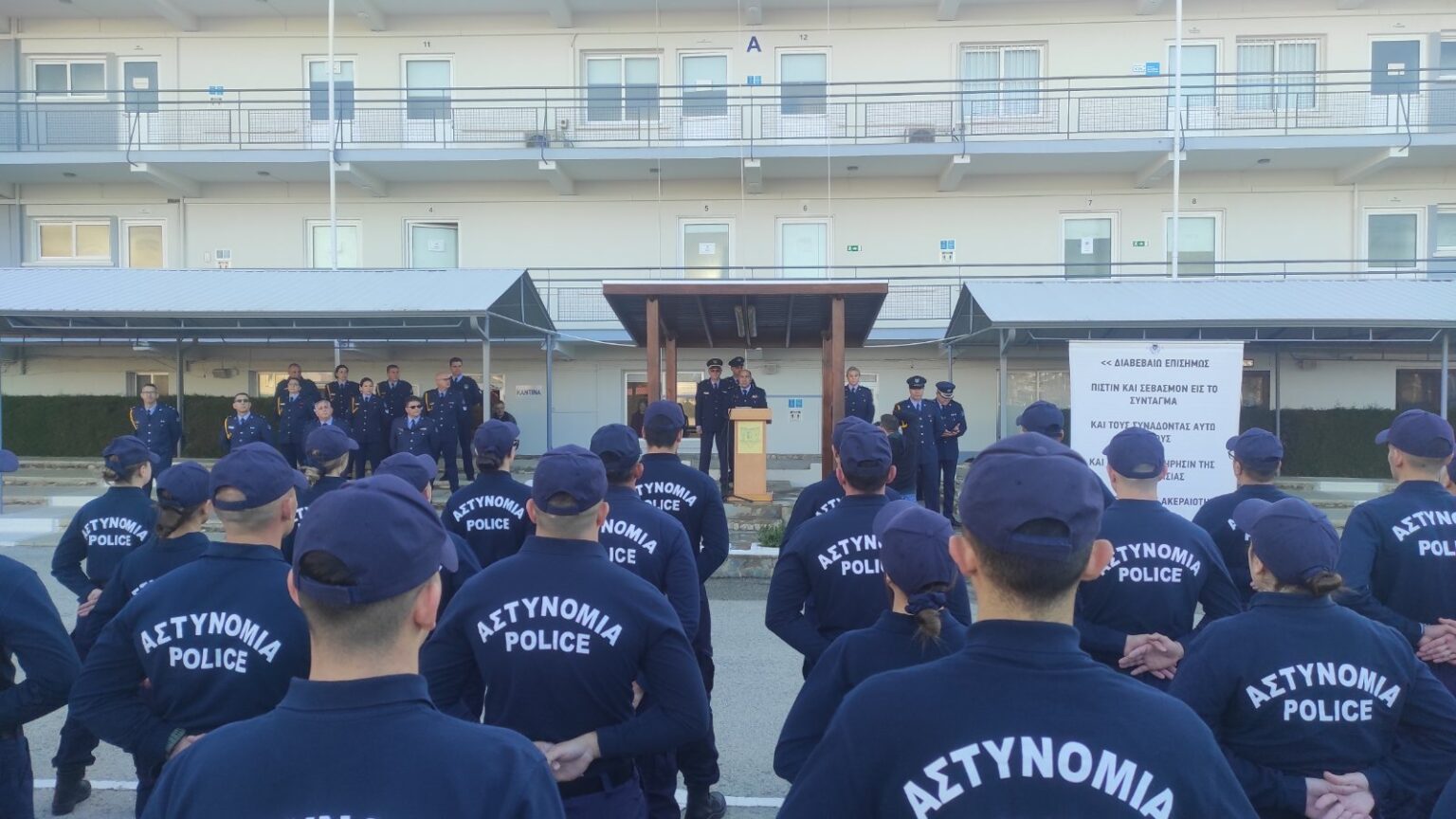Measures announced to tackle organised crime came under fire on Tuesday, while Justice Minister Marios Hartsiotis said their immediate introduction would boost effectiveness as holistic improvements to the structure of the force were also in the works.
But opposition parties Akel and Disy, among others, said the announced measures were not sufficient to tackle the aggravated state of the problem and that a comprehensive restructuring of the police force is needed.
Among the shortfalls, detractors attacked the measures for stopping short of announcing the creation of a specialised organised crime unit, for failing to detail specific supports for police, for not tackling deterrents to merit-based appointments, and for failing to address the anarchic situation prevailing in the central prisons.
Hartsiotis acknowledged that further actions need to be taken, saying these would happen following proper evaluation, but announced the recruitment of 500 additional police officers within the year.
Akel raised concerns over certain proposed measures, including increasing the “visibility” of officers on the streets, saying it risked Cyprus being turned into a police state.
Legal expert Elias Stephanou told state broadcaster CyBC that the main focus ought to be for police to be more visible so as to rebuild public confidence and trust in police effectiveness.
Recognition of the problem of organised crime was a step forward, Stephanou said, offering as an example the drug squad (Ykan) which did not exist in the 80s as a separate entity, but was established as the need for a specialised force became apparent – as is the case with domestic violence and sexual crime units.
But, “the creation of specific entities is required to monitor and deal preventively with [organised crime] not just with detection [after criminals strike],” Stephanou warned.
Moreover, politics should not get mixed up with hiring, firing and transfers, the legal expert charged, claiming that “fifty per cent of the problem would disappear” if this one change were carried through.
“Even though a law legalising surveillance [of known criminal elements] went into effect in 2010, the law has not been implemented to my knowledge,” he added.
Police should also be supported with specially appointed legal counsellors and prosecutors, Stephanou said.
Renowned litigator Chris Triantafyllides also said the success of the measures was down to individual police officers carrying out their duties with proper diligence, so as not to give time to criminals to continue acting with impunity.
Police are not doing their jobs correctly, Triantafyllides charged.
“Police must become more visible and present on the streets, acting constantly on known information,” he said.
The various services should be better coordinated and not isolated as they currently are, the legal expert added.
Despite the fact that Cyprus is small and “neighbours know [everything]”, the public is fearful of supplying police with evidence because of the lack of confidence in the force’s capacity to offer protection, and addressing this is a must, Triantafyllides said.
He added that political protection for criminals – if indeed an issue – must also be decisively tackled.
Nikos Loizidis, police union Isotita spokesman, said the measures were in the right direction and that the fact that it was acknowledged that front line officers must be supported, something police had been requesting for a long time, was a new development.
The justice minister, meanwhile, responded to criticism that no mention had been made in the measures to address the state of the central prisons, from where international studies have determined that 50 per cent of organised crime emanates.
Asked about the issue of phones being used by inmates, Hartsiotis deflected the question, stating, “I believe everyone can realise that some measures cannot be commented on in this phase.”
He went on to defend the actions of the ministry, saying, “the key point about these measures is they went immediately into effect yesterday, based on the capacity of the police force is at this exact moment.”
Police on Monday announced eight measures aimed at tackling organised crime and football violence, including increasing the number of front-line officers, more patrols, and more detailed checks on fans attending games, including set times during which some individuals would be permitted to enter.
Five of the measures aim to combat serious crime while the remaining three aim to tackle stadium violence.
The number of officers working on the front lines will increase, while pedestrian and vehicle patrols across the country will ramp up.
Additionally, the police units dealing with electronic crime will be strengthened, as will investigations to tag and seize financial gains from illegal activities, such as drug dealing.
Other measures were said to be implemented which could not be published for security reasons.







Click here to change your cookie preferences